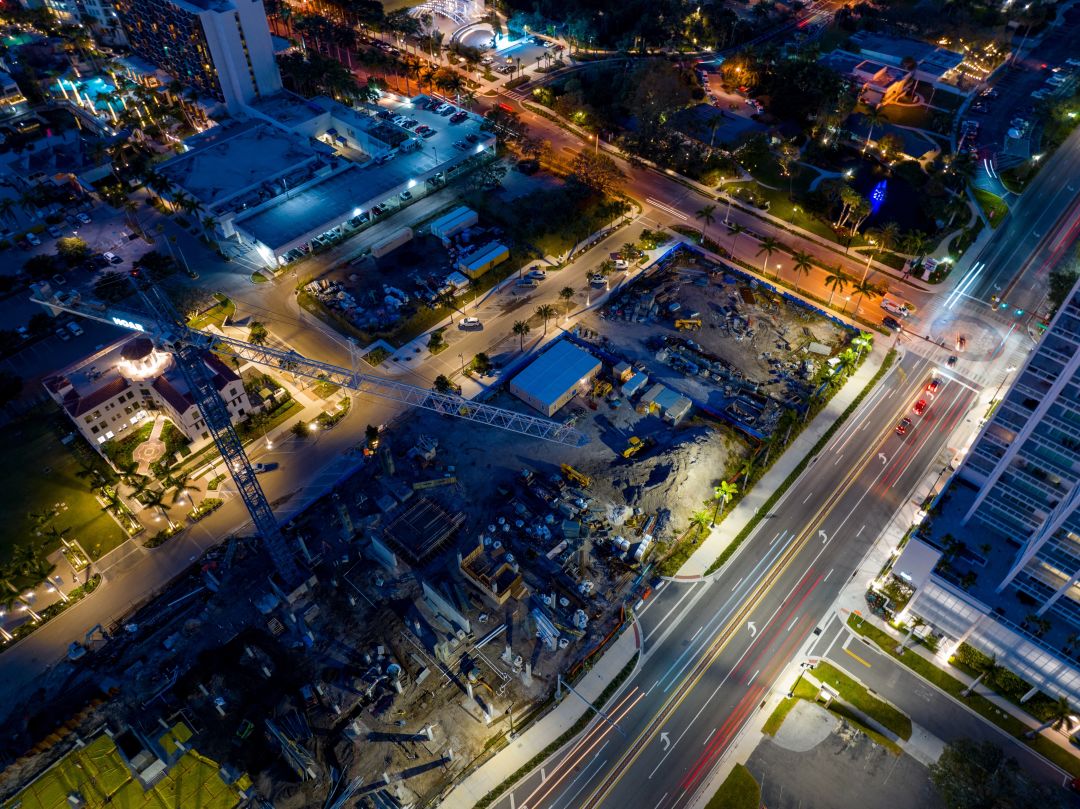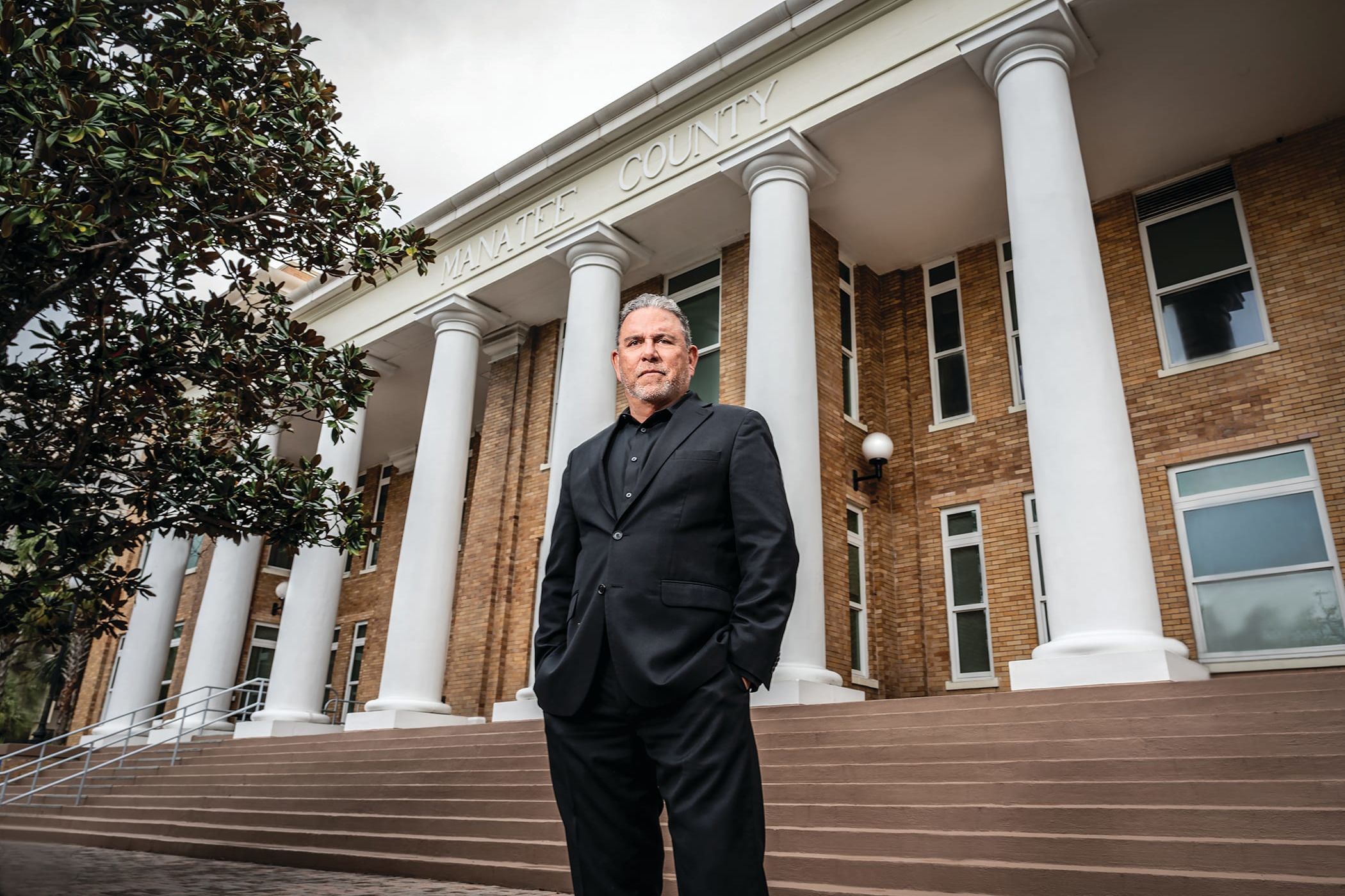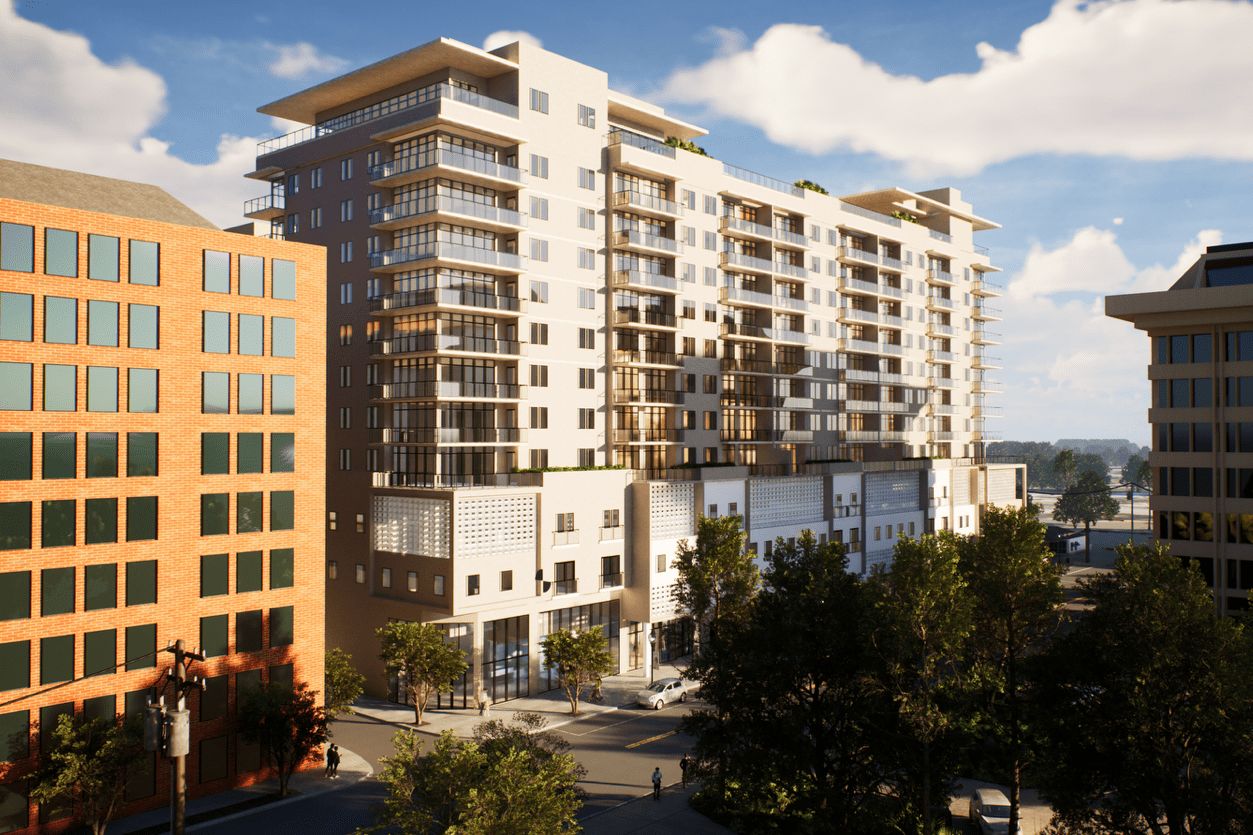Business Leaders Say Florida's New Immigration Law Will Make It Harder and More Expensive to Build

Construction in downtown Sarasota.
A recent immigration bill passed by the Florida Legislature and signed into law by Gov. Ron DeSantis could make building costs more expensive and make projects take longer to complete. Approved by DeSantis last month, SB 1718 increases employment requirements and will allow state law enforcement officials to audit businesses suspected of hiring undocumented workers.
It's no secret that immigrants perform much of the labor that it takes to build a home in Sarasota and around the state, and local employers are scrambling in response to the new legislation.
“What’s going to happen to trades historically reliant on immigrant labor?" asks Kelly Kirschner, a former Sarasota city commissioner and the co-founder and now chair of UnidosNow, a local nonprofit that helps Latino communities through integration and education. "You’d be hard-pressed to find a job site that isn’t a majority-immigration work site.”
According to local immigration lawyer Gabriela Riza, employers are already working hard to stay staffed even though the law hasn't taken effect. “I’ve been slammed,” she says.
“It’s very bad for our industry,” says Jon Mast, the chief executive officer and lobbyist for the Manatee-Sarasota Building Industry Association. He says he expects the bill will “raise the price of everything. Prices have settled some, the supply chain has leveled out, but when you have no labor, then labor can raise its price to whatever it wants.”
According to the new law, employers with 25 or more employees that are making new hires must use E-Verify, a federal online database used to confirm whether someone is eligible to work in the U.S. Any employer who fails to use E-Verify will be fined $1,000 per day. As a result, some employers are responding by deciding to keep their businesses small, regardless of growing consumer demand.
“If I want to grow my business, this will block me and I’ll choose to stay small," says Jesus Hernandez, owner of Palmetto's GTO Services, which offers tree and concrete services. The 36-year-old was born in Mexico and has lived in the area for 26 years.
According to Riza, construction industry employers with larger staffs are even considering splitting up existing businesses into separate entities with fewer than 25 employees each.
“Whenever you restrict immigration, it leads to more creativity," she says. "It doesn’t fix the issue. This is only adding confusion and fear."
Per the new law, transporting a person without regulated immigration status into Florida will be a crime punishable by up to 15 years in prison. This may include driving a friend who lives in Florida and is returning from an out-of-state trip.
However, Riza says it will not be a crime to provide transportation within the state of Florida to any person with an unregulated status. “If you don’t know your friend’s status and you take them to the beach and get pulled over, it would have created a huge liability,” she says.
According to the Florida Coalition for Immigration, other provisions of SB 1718 include:
- Using false identification to gain employment will be considered a criminal offense and those found guilty may face up to five years in prison and a $5,000 fine.
- Driver licenses from 16 states and the District of Colombia that were issued to undocumented drivers are no longer valid in Florida and require law enforcement to cite these drivers as though they had no license.
- $12 million in state funds will be diverted to fund the transportation of immigrants outside of Florida through the “Unauthorized Alien Transportation program.” DeSantis transported two airplanes of migrants to Martha’s Vineyard last year and others to Sacramento, California, last month, keeping a promise to move migrants to states led by progressives.
- Community IDs, a document used by those without regulated status to do things like identify themselves when picking up their children from school, will no longer be funded by local governments.
Established immigrants are saying the bill is sowing fear among newer arrivals who would rather leave the state than wait and see how it will be enforced.
"The recent arrivals don't have the experience to know whether this will be enforced,” says Manuel Rangel, owner of Del Mar Stone & Tile in Sarasota. "They figure, 'They're passing a law; we have to leave,' and it leads to rash decisions instead of possibly educating themselves on what's going on and what might happen.”
Established business owners are questioning whether, more than anything, the new bill is posturing as part of DeSantis' 2024 presidential campaign.
"I've been in the States for 32 years," says Rangel. "We've seen this before. Over time we get numb to it. It's a flex to maybe get people to move willingly and not actually enforce it. It seems like a power move for DeSantis.”
Whatever the intended outcome, an existing labor shortage in construction may only get worse. With a local unemployment rate hovering around 2.6 percent, it’s already a challenge to find the hands it takes to build all the new developments in the area.

A construction crew at work in Bradenton
Image: Kim Doleatto
"It was already hard to get people willing to work eight-hour days, especially in the summer," says Hernandez. "It's going to affect our economy with so much construction going on. I don't know if the governor sees that. We do the hard work. I try to hire Americans, but the work ethic is just different. After Hurricane Ian, we had Hispanic people from Texas come in 'cause we didn't have enough workers."
“Home prices will go up," says Rangel. "It will also slow down the process of building. Time is money, and if builders aren't getting things done on time, they're losing out. It affects all of us. Some think it means more jobs for Americans, but they don't know the cost of American workers."
Armando Oyola, the owner of Aegis Construction Services, has lost four of roughly 50 workers already due to the bill. “Prices will go up," says Oyola, who has spent 25 years in his industry. "In a regular market, they pay me 95 cents a square foot to drop cement for labor only. A developer recently offered me $4 a square foot. They're trying to get ahead of the game and lock me in already."
"A documented worker that's good will make between $20 to $30 an hour," he adds. "An undocumented [worker] gets roughly $150 a day for 10-hour days." But with fewer workers to choose from, Oyola sees raises on the horizon. "Guys who were making $20 are going to want double to compensate for the market," he says. "Eventually, they'll get those raises, and it will trickle down to the homebuyer."
In an effort to assuage confusion about the bill, the Florida Immigrant Coalition has published details about what the bill does not do:
- It will not be a crime to live with, provide shelter for or rent space for family members or anyone else with unregulated status.
- It will not be a crime to provide transportation within the state of Florida to someone with unregulated status.
- You do not have to provide immigration status to hospitals and you have the right to decline to answer questions about your status.
“Resolving a national problem related to immigration policy and expecting a state to address a national issue is unfortunate," says Kirschner. "We fear the repercussions not only on families but the local region and our state."



